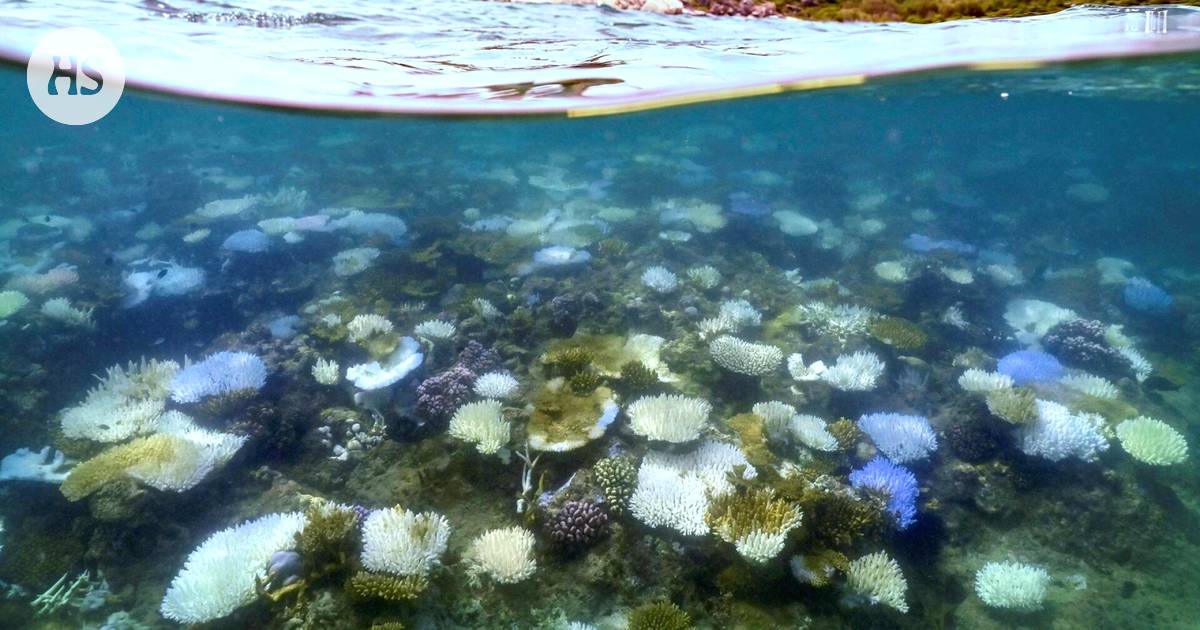The fifth major coral bleaching incident in eight years is underway on the reef
Corals bleaching and other destruction caused by climate change have treated the Great Barrier Reef off Australia more harshly than in previous summers, tell local authorities.
The reef is experiencing the fifth major coral bleaching event in eight years, and in addition, the area has been hit by two cyclones and several floods during the local summer. In addition, the reef has suffered from coral-eating starfish known as crown of thorns.
According to the authority responsible for the Great Barrier Reef Marine Nature Park, the cumulative effects of the destruction encountered around the reef during this summer have been greater than in previous summers.
The authority responsible for the marine nature park regularly publishes updates on the state of the coral reef. The freshest update published on Tuesday.
The Great Barrier Reef, found on the UNESCO World Heritage List, has often been described as the world’s largest living structure. The biologically amazingly diverse reef contains, among other things, more than 600 different corals and more than 1,600 different species of fish.
Faded and dead corals on the Great Barrier Reef this month.
The authorities According to the report, surveys have been carried out from the air in the area of a total of more than a thousand reefs. Coral bleaching was observed in 73 percent of the reefs examined in the marine nature park area and in six percent of those examined in the Torres Strait area.
A recent situation update shows that corals in parts of the reef have been exposed to record high heat stress.
“Climate change is the biggest threat to the Great Barrier Reef and coral reefs worldwide”, the leading researcher of the authority responsible for the nature park Roger Beeden says in the announcement.
“Iso Valliriutta is an incredible ecosystem, and although it has shown its resilience time and time again, this summer has been particularly challenging.”
In connection with bleaching, the corals drive away the algae that live inside them, which take most of the nutrients and color of the corals with them. Bleaching does not always lead to coral death, as some corals can recover if their habitat cools.
There have been reports of reef bleaching around the world over the past 12 months.
Australian researcher at the Institute of Maritime Sciences (AIMS). David Wachenfeldin according to the institute’s research divers have already observed coral mortality caused by bleaching in every area of the reef.
The institute’s long-term monitoring over the next 12 months will help understand the ultimate balance between coral survival and loss, according to Wachenfeld.
“Although these results are still coming in, the extent of heat stress and the results of aerial surveys indicate that this is one of the most extensive bleaching events the reef has experienced in nearly 40 years of AIMS monitoring,” Wachenfeld emphasizes, according to the release.
“The coral cover of the Great Barrier Reef has increased to a high level in recent years, which shows that it is still a resilient system. But this tenacity has its limits.”
